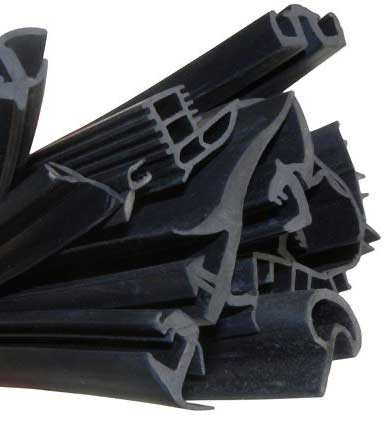Dense Rubber
vs.
Sponge Rubber
Dense rubber seals and sponge rubber seals are ideal for various purposes, with their individual structures being the primary difference between them. Sponge rubber seals contain small air pockets contributing to their softness, squishiness, and flexibility. In contrast, dense rubber seals are heavier and contain no air pockets, which makes them solid and firm.

Dense Rubber Seals
Dense rubber seals offer numerous benefits, particularly their extreme durability, noise reduction, weatherproofing, and resistance to abrasions and tearing. Depending on the type of rubber used, it may be chemical-resistant and waterproof or water-resistant. This makes them a prime choice for heavy-duty applications, such as boat windows and industrial machinery.
There are various types of dense rubber, including natural rubber, silicone rubber, nitrile, EPDM and neoprene. Depending on their composition, the seals are used in many applications, including:
- Doors and windows on boats, cars, trucks and RVs
- Vehicle trunks
- Industrial machines
- HVAC systems
- Medical devices
- Vehicle engines and fuel systems
Sponge Rubber Seals
Flexibility and softness are two of sponge rubber seals' biggest advantages. They allow the seals to fit tightly into various small spaces by conforming to their shape, helping create a tight seal. Additional perks, such as noise reduction, shock absorption, and insulation, depend on the specific type.
The specific uses for sponge rubber seals depend on their type. However, some common uses include:
- HVAC insulation
- Weatherstripping on vehicle trunks, windows, and doors
- Boat hatch seals
- Vibration dampening in industrial machinery
- Noise reduction in buildings and vehicles
